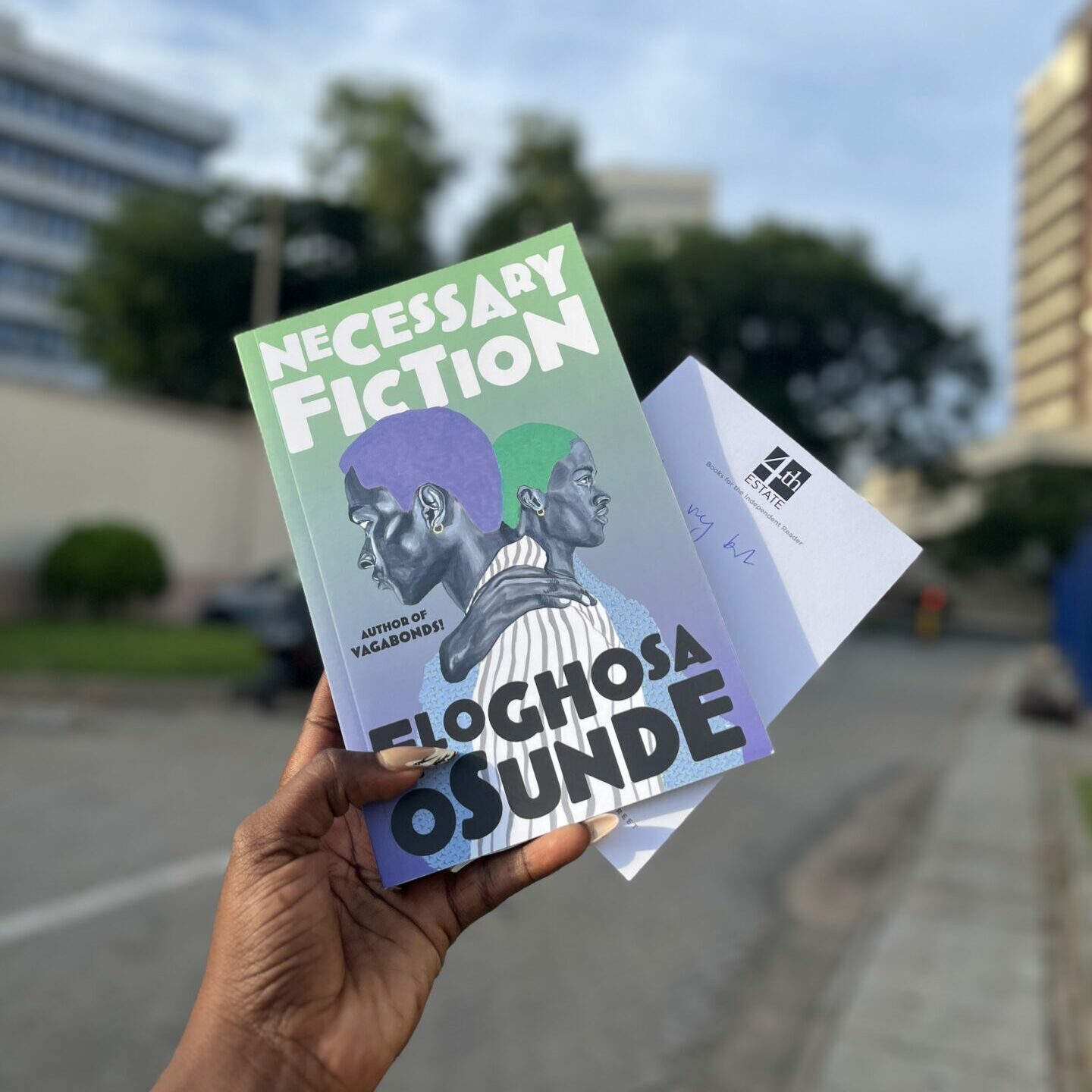
Top 30 Cartoon Characters That Were Villains
Our list rounds up the top 30 cartoon characters that were villains, each one more wonderfully wicked than the last.
African Literature, queer
Necessary Fiction is a Communion of Truth. It demands that we slow down, listen deeply, and absorb not only what is said, but what is felt.

Necessary Fiction is a Communion of Truth. It demands that we slow down, listen deeply, and absorb not only what is said, but what is felt. And like all true communions, it leaves you transformed.
I tell people all the time, street na electric, anybody fit shock you. So when you find your people, the ones wey go ride for you till this world fold, commit to them like it’s a religion.
Set in Nigeria, Necessary Fiction, told across multiple stories, follows the lives of cross-generational queer people and their experiences.
At the heart of the novel is a community of characters navigating the space between necessary lies and liberating truths.
We meet Ziz, a serial entrepreneur with schemes both absurd and brilliant, ranging from actor-for-hire to fake travel souvenirs. Ziz embodies the hustle, satire, and heartbreak of a world that demands constant reinvention.
His closest friends include Maro, a grieving son mourning his father’s death and complex legacy, and Akin, a quiet musician whose emotional range is often played out through sound rather than speech.
Characters like May, Akin, Ayinke, Ajimobi, Aunty G, the twins, Awele, and Yesimi carry with them not just stories but spiritual weight.
…Silence is a blessing, silence is safe, silence is calming, silence is full of love, silence is goodness resting, silence is music. Silence is for me, silence has great potential, silence is vast and humbling. Silence is complete, silence is true, silence is prayer.
We are introduced to Awele and Yesimi, two young women whose teenage love story is both a tender bloom and a tragedy stifled by exposure and shame. However, they somehow find their way back to each other, in contrast to Bessem and Fatima, in the novel These Letters End in Tears by Musih Tedji Xaviere.
Also, we see the tenderness and love between Hassan and Tega, whose relationship—like many in the novel—is not neatly resolved but lived through with grace, hurt, and hope.
And you know what? In life, you have to be careful who you allow to trust you; you have to know where to stop before life stops you.”
In Necessary Fiction, Eloghosa invites us to a communion with her characters. In silence, they ask us to sit with their pain, joys, and rebellion until their truth becomes inseparable from our own. Yet with all the heaviness presented, the novel is suffused with tenderness, intimacy, and the joy of chosen family.
In a country (Nigeria) where queerness is often criminalized, where survival depends on performance, these characters navigate the delicate balance between concealment and revelation. As one character says:
Before we met each other, we all had lies we needed to tell ourselves and others if we were going to live well. Maro says there’s already a term for that type of lie: necessary fictions.
These necessary fictions are seen in the generational divide presented in the book—the divide between those who had to love in silence and those who now dare to name their identities.
Isoken and Alhaji embody these conflicts. Their internalized shame, their buried relationship, and their confrontation with her children’s openness form one of the most powerful meditations in the novel on shame and generational trauma.
…They think they are braver; they are just louder.
Even the loudness is sacred. The blog entries, the Truth Circle, and the whispered confessions are all acts of faith and a liturgy of survival. I loved how they speak in dialect, resist full exposition, and the radical tenderness they share among themselves despite the pain, the abusive parents, the societal rejections, and the buried grief.
“If you have friends, you have love. If you have yourself, you have love. If you have me, you have love. Look at me, you have love. Leave the past, you have love. Hold the future because you have love.”
The final scenes, Maro’s wedding and Awele’s drafting of a new essay in her note app, felt like a benediction:
You taught me that wounds are not the only things we can respond to. We can also respond to how much love we’ve seen.
The essence of Necessary Fiction is that it offers a feast of language, love, and defiance. To read this book is to sit at a table where stories are broken like bread, where silence is as nourishing as speech.
Benereads is a dedicated literary reviewer and book enthusiast, offering insightful critiques and curated recommendations across a wide range of genres. With a sharp analytical perspective and a passion for storytelling, Benereads helps readers discover compelling books—from contemporary fiction to thought-provoking nonfiction. Follow for expert reviews and engaging literary discussions.

Our list rounds up the top 30 cartoon characters that were villains, each one more wonderfully wicked than the last.

DC is great at making comics and animated movies, while the MCU has the upper hand in its cinematic aspects

Discover the best apps to read books for free in 2025. Access thousands of free e-books and audiobooks on your phone or tablet. ...

There are some outright funny cartoon characters who exist solely to crack you up, loud, hard, and with zero apology.

Things Fall Apart is for the colonizers as well as the colonized, helping to understand the role of colonialism in the realization...

While many of the Nollywood movies on our list are quite old, it’s a testament to the capabilities of the industry’s p...

While this isn’t an exhaustive list, it comprises some of the most popular mythical creatures from around the world.